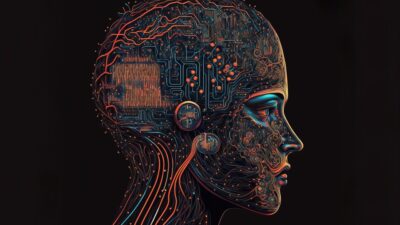The rapid evolution of urban environments has ushered in an era where smart cities are becoming more than just a vision; they are a reality empowered by artificial intelligence (AI). As cities around the world face challenges such as overcrowding, pollution, traffic congestion, and energy consumption, AI technologies are being leveraged to create more sustainable, efficient, and livable urban spaces.
What is a Smart City?
A smart city integrates technology, data, and artificial intelligence to improve the quality of life for its residents while driving economic growth. This concept encompasses a variety of smart infrastructure, including transportation systems, energy management, public safety, and health services, all interconnected through the Internet of Things (IoT). By collecting and analyzing vast amounts of data, smart cities can enhance decision-making processes and optimize resource allocation.
Enhancing Urban Mobility
One of the most pressing challenges of urban living is transportation. AI is transforming the way we navigate cities by improving traffic management and public transportation systems.
Traffic Management Systems
AI algorithms analyze real-time data from traffic cameras and sensors to optimize traffic flow. They can predict congestion, manage traffic signals, and reroute vehicles, which reduces travel time and emissions. For instance, cities like Los Angeles and Barcelona have implemented adaptive traffic signals that adjust based on real-time conditions, leading to smoother commutes.
Public Transport
AI is also revolutionizing public transit systems. Machine learning models can forecast passenger demand, allowing transit agencies to optimize schedules and routes. Ride-sharing apps leverage AI to offer on-demand services, making public transport more accessible and efficient. In cities like Singapore, AI-driven systems work alongside mobile applications to provide real-time updates and increase commuter convenience.
Energy Efficiency and Sustainability
Smart cities are increasingly focusing on sustainability, and AI plays a vital role in optimizing energy distribution and usage.
Smart Grids
AI technologies enable the creation of smart grids that optimize energy consumption and reduce wastage. Using advanced algorithms and predictive analytics, smart grids can balance demand and supply, prevent outages, and integrate renewable energy sources effectively.
Waste Management
AI solutions are also enhancing waste management practices. Smart bins equipped with sensors can monitor waste levels and optimize collection routes, reducing fuel costs and emissions. In cities like Amsterdam, AI-driven waste management systems are improving recycling rates and minimizing landfill usage.
Public Safety and Security
AI is pivotal in ensuring the safety and security of urban spaces.
Surveillance Systems
Smart cities utilize AI-powered surveillance systems that analyze video feeds to detect unusual behaviors and potential threats in real-time. This enables law enforcement to respond more quickly to incidents and can serve as a deterrent to crime.
Disaster Response
AI also plays a crucial role in disaster management. Machine learning models can predict the likelihood of natural disasters and analyze historical data to improve emergency preparedness and response. For instance, AI can assess risk factors and provide real-time updates during events like floods or earthquakes.
Healthcare Innovations
Healthcare accessibility and responsiveness are critical components of urban living, and AI is enabling significant advancements.
Telehealth
In smart cities, AI-driven telehealth platforms allow residents to access medical consultations from their homes, reducing the burden on hospitals and clinics. Advanced algorithms triage patients based on symptoms, facilitating timely care.
Predictive Analytics
AI is also being used to analyze health data to identify potential outbreaks or health risks. By monitoring trends in diseases and public health, cities can allocate resources more effectively and enhance overall community health.
Challenges and Considerations
While the benefits of AI in smart cities are significant, challenges must be addressed. Issues related to data privacy, security, and the digital divide necessitate thoughtful planning and governance. Cities must ensure that their AI systems are transparent and equitable, providing access to all citizens, particularly marginalized communities.
Conclusion
The integration of AI into urban living is redefining what it means to inhabit a city. From enhancing mobility and energy efficiency to improving public safety and healthcare, smart cities are utilizing data-driven solutions to create more sustainable and livable environments. As we look to the future, the continued evolution of smart cities will depend not only on technological advancements but also on our commitment to fostering inclusive and resilient urban communities. By embracing these innovations, we can pave the way for a brighter, smarter future for urban living.



